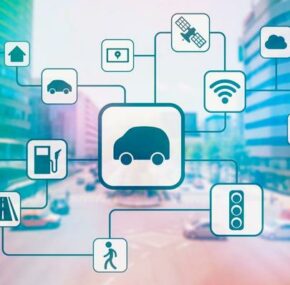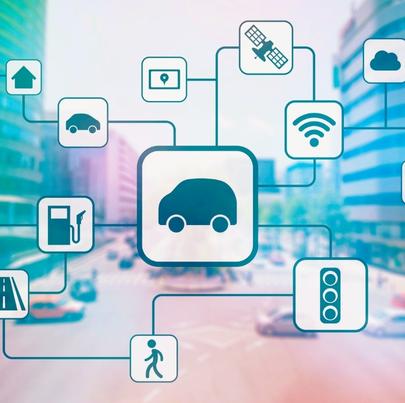As more vehicles are becoming connected to the Internet, the FBI and U.S. Department of Transportation are warning manufacturers and consumers about their dangers. An estimated 250 million connected cars will be on American roads by the year 2020. One recent experiment exposed some of the vulnerabilities of these vehicles.

What are Connected Cars?
Connected cars are vehicles that are equipped with Internet access, and usually with a wireless local area network as well. This allows the car to share Internet access with devices within and outside of the vehicle.
These connected cars definitely have their benefits. They can provide automatic reporting of accidents, along with weather and safety alerts. They also let passengers enjoy wireless devices and entertainment systems. Some connected cars can integrate with smart phone operating systems and utilize their apps.
The Obvious Dangers
Distracted driving is a huge problem, which is likely to get more serious as more and more cars with Internet access hit the roads. Anytime that someone takes their eyes off the road, or their hands off the wheel, they are distracted from driving safely.
(Article continued below the Infographic)

Though Illinois law does ban the use of phones and electronic devices while driving, that are not hands-free, even hands-free options can be distracting. The National Highway Traffic Safety Administration has warned consumers that any non-driving activity can increase the risk of crashing. Even using a phone or GPS unit hands-free can compromise a driver’s ability to avoid an accident.
The NHTSA also notes that texting while driving is six times more dangerous than driving drunk. At any given time, 800,000 vehicles in the US are being driven by someone using a cell phone and nearly 50 percent of drivers admit to having texted while driving. As connectivity in cars becomes the norm, it won’t just be texting, talking and navigation that impairs driver focus.
Web browsers are already showing up on vehicle consoles, like the Tesla Model S. Car manufacturers are even considering dashboards that serve as e-commerce platforms, offering vouchers to nearby services stations or directing drivers to local eateries. Along with being a distraction, these can also be viewed as invasive.
The New Dangers
The more connected that cars become, the more vulnerable they are to a new type of danger. In the summer of 2015, hackers were able to successfully pull off a cyber-attack on a Jeep that was driving at 70 mph, effectively running it off the road.
Though this event was part of a controlled experiment, it exposed a major vulnerability, and this isn’t the only example. A device was discovered that could hack into GM’s connected OnStar service and, most recently, the Nissan Leaf was found to be hackable, because of insecure APIs. Of course, an accident caused by hackers accessing their control systems isn’t a major fear for most drivers, but there are also some additional concerns to be aware of.
The FBI notes that vulnerabilities within a vehicle’s wireless communications functions or any third-party device connected to its systems could leave a car at risk. The more devices that are connected, the more opportunities that cyber criminals have to attack.
Many connected cars collect data on the vehicle itself, like GPS coordinates or speed. This data can help emergency personnel find a damaged or stolen car or determine how fast it was going before an accident. This same data can lead to privacy and safety concerns.
Personal data is all over the Internet, and it may soon be in every vehicle. This personal information could be a temptation to hackers, who are accustomed to accessing sensitive information. Identity theft is already a major issue for consumers, and connected cars could increase the risk.
Another threat has more to do with personal safety on the road. Just as computers and other electronic devices experience glitches and malware, so could cars. When this happens on the road, the physical safety of drivers, passengers and those in surrounding vehicles suddenly becomes a concern. A glitch that affects a braking or steering system could cause severe damage.
Staying Safe
While there are no widespread laws that protect the safety of those driving in or around connected cars at present, this will likely change as technology advances. In the meantime, minimizing distractions and not utilizing electronic devices while driving can keep the roads safer. Since even hands-free devices can threaten the safety of individuals on the road, drivers should pull over to make calls, check maps and send texts or emails.
Those who have been injured in an accident, and suspect that distracted driving may have played a role, may contact a Chicago personal injury attorney. Damages can be sought when another driver’s negligence is the cause of serious injury or death on the roads.






